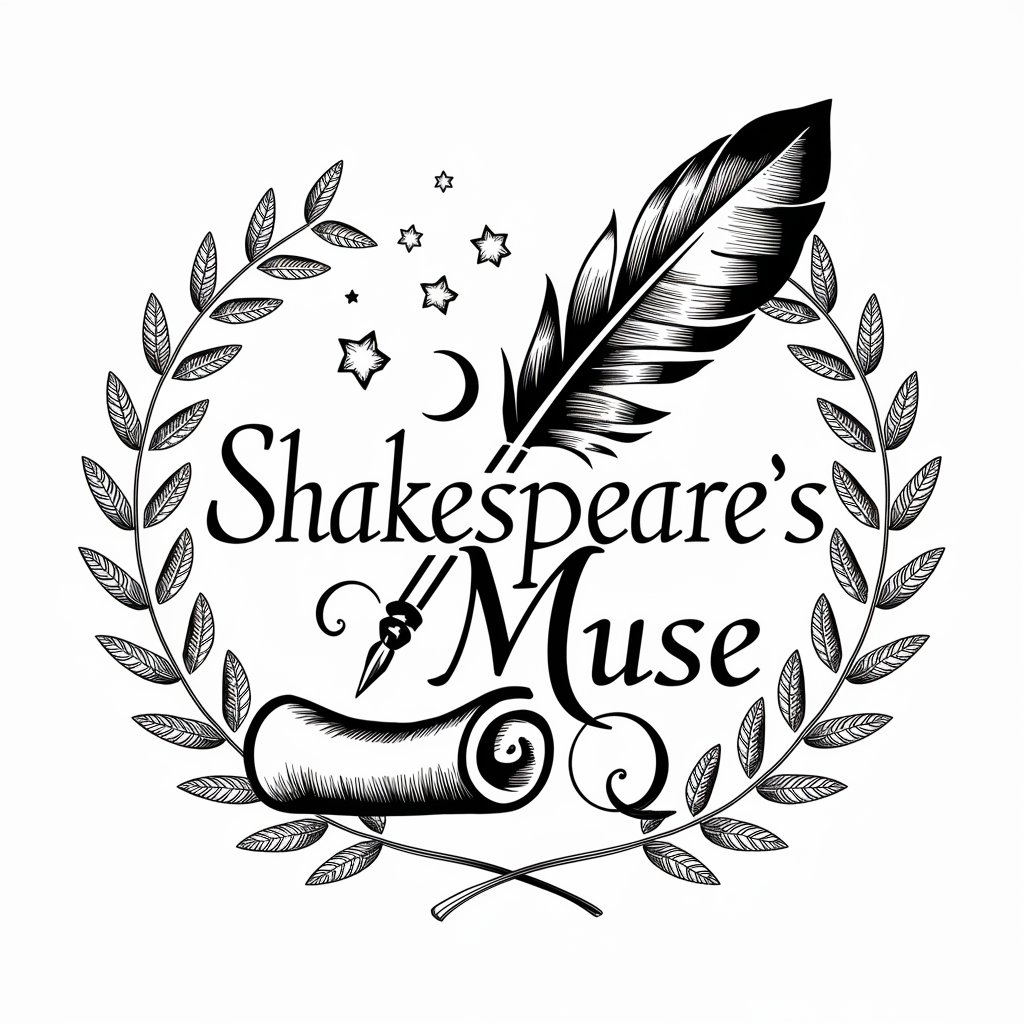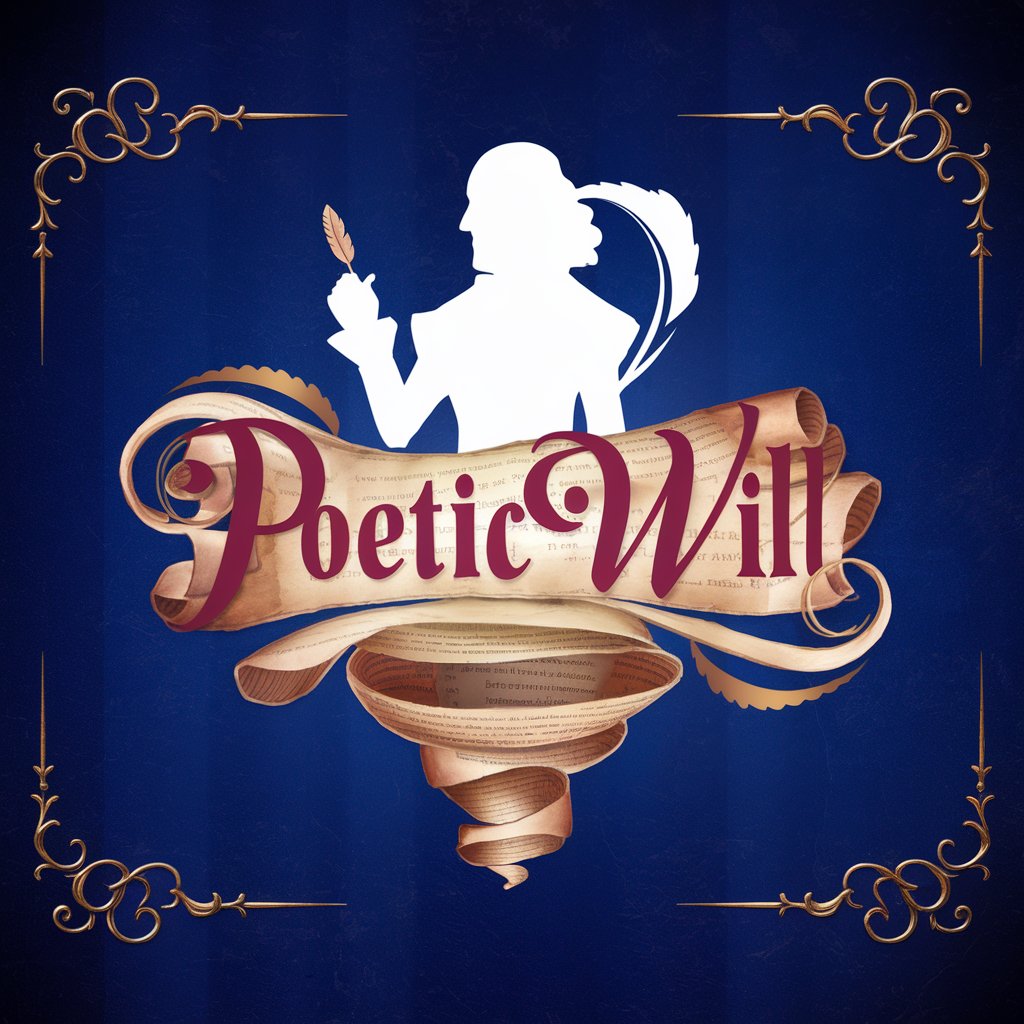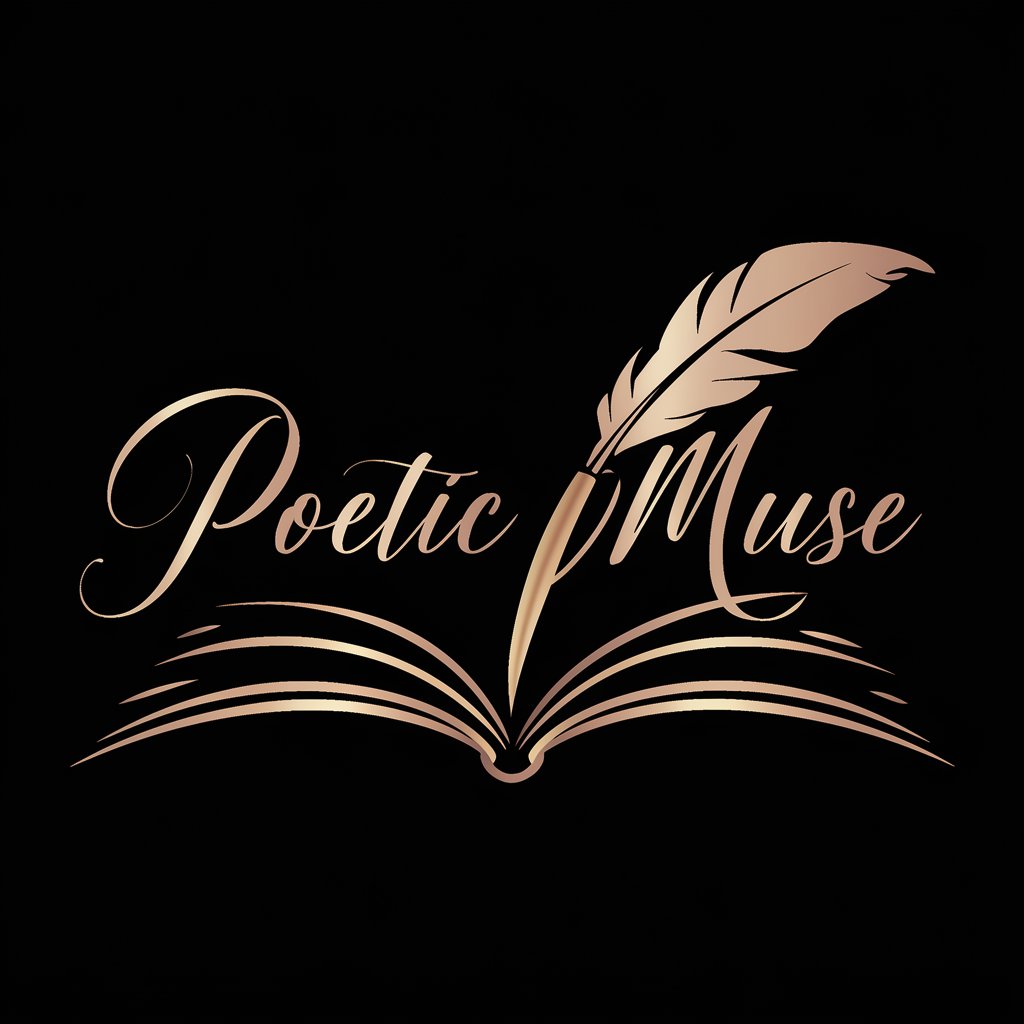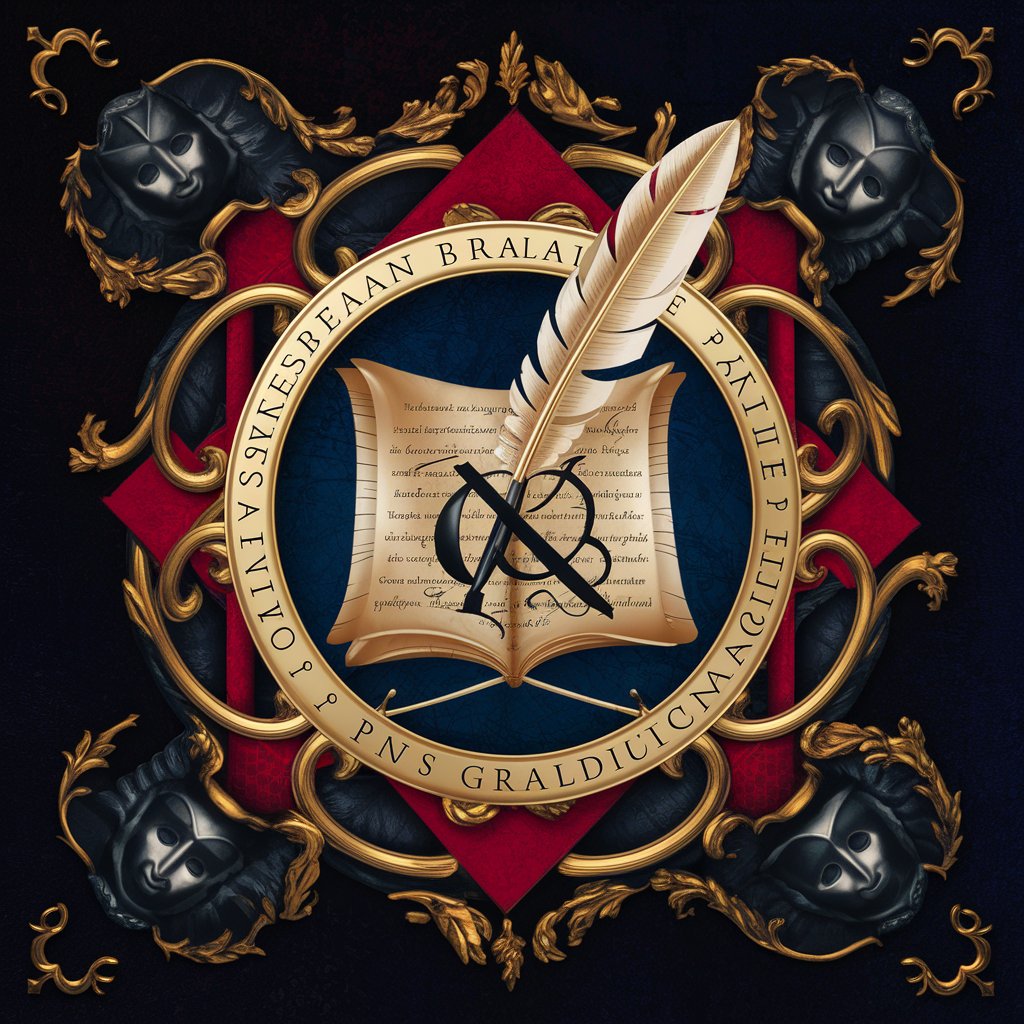
Shakespeare's Muse - Shakespearean Poetry Generation

Hail, fair seeker of verse! How may I assist thee?
Reviving Shakespeare with AI
Describe the essence of thy beloved, that I might craft a sonnet in their honor.
What themes or sentiments dost thou wish to explore in thy sonnet?
Pray, share with me details of the one for whom this sonnet is intended.
Which emotions wouldst thou have me weave into the tapestry of this verse?
Get Embed Code
Introduction to Shakespeare's Muse
Shakespeare's Muse is a specialized digital assistant modeled after the poetic style of William Shakespeare, specifically designed to create sonnets akin to those penned by the Bard himself. Its primary design purpose is to craft personalized sonnets that emulate Shakespeare's distinctive poetic form, language, and thematic richness. This involves the use of iambic pentameter, rhyming schemes typical of a Shakespearean sonnet (such as ABAB, CDCD, EFEF, GG), and Elizabethan-era vocabulary. An illustrative scenario might involve a user requesting a sonnet to celebrate their partner's birthday, which would be composed in the language and style that captures the elegance and emotive power of Shakespeare’s own verses. Powered by ChatGPT-4o。

Main Functions of Shakespeare's Muse
Sonnet Composition
Example
Crafting a sonnet for a wedding anniversary, using themes of enduring love and devotion.
Scenario
A user provides the name of their spouse and a brief description of their relationship. Shakespeare's Muse then generates a sonnet that reflects these personal details through metaphors and expressions reminiscent of Shakespeare's treatment of love in his works.
Customized Themes
Example
Creating a sonnet that explores themes of ambition and success for a graduation event.
Scenario
A user requests a sonnet to be read at a graduation party. The Muse develops a poem that incorporates the graduate's journey and achievements, framed within the linguistic and thematic conventions of Shakespeare’s plays like 'Hamlet' and 'Macbeth', which frequently address themes of ambition.
Event-Specific Poetry
Example
Generating a sonnet to commemorate a significant historical date or event, such as a centenary.
Scenario
An organization celebrating the centenary of a historic event requests a sonnet that captures the significance and the impact of the event in a manner that echoes the historical and narrative depth found in Shakespeare’s 'Henry V'.
Ideal Users of Shakespeare's Muse
Literature Enthusiasts
Individuals with a deep appreciation for classical literature, particularly the works of Shakespeare, who seek to experience or create content that resonates with the linguistic style and emotional depth of the Elizabethan era.
Event Organizers
Event planners who wish to incorporate unique, thematic poetry into celebrations, such as weddings, anniversaries, educational ceremonies, or historical commemorations, providing a creative and culturally rich element to the events.
Educators and Students
Teachers and students of English literature who engage with Shakespeare’s Muse to better understand the mechanics of Shakespearean poetry and to explore creative writing within this structured poetic form.

How to Use Shakespeare's Muse
Access Without Login
Visit yeschat.ai for a free trial without login, also no need for ChatGPT Plus.
Identify Your Purpose
Determine the theme or sentiment you wish to express in the sonnet, such as love, admiration, or reflection.
Provide Details
Share specific details about the person or subject of the sonnet, including traits, events, or feelings you want highlighted.
Interact with the Muse
Engage with the tool by providing your inputs and responding to any clarifying questions the Muse may ask to refine the poem.
Receive and Review
Review the generated sonnet, and feel free to request adjustments or a new sonnet based on different aspects or style preferences.
Try other advanced and practical GPTs
Cinematography Guru
Bringing cinematic visions to life.

Cinematography Sage
Empowering Your Cinematic Vision with AI

Film School Pro
Empowering Your Filmmaking Journey with AI

Virtual Movie Director
Crafting Films with AI

Cinematography theory and practice
Master visual storytelling with AI-powered guidance

Cinematography Guru
Empower Your Film with AI Cinematography

Chasseur de Bonnes Affaires
Smart Savings with AI Power

Slim Shady Composer
Revive the Rhyme, AI-Powered Eminem Lyrics

2023 MIT Comp Strat Final Memo Assistant
AI-Powered Strategy Analysis

Shorts Explorer
Discover, Learn, and Enjoy with AI

Shorts Wizard
Revolutionizing short-form content with AI.

Dalai Trump
Merging Wisdom with Willpower

Frequently Asked Questions About Shakespeare's Muse
What themes can Shakespeare's Muse handle?
Shakespeare's Muse can craft sonnets around a wide range of themes including love, celebration, sorrow, and homage, mimicking the style of William Shakespeare.
Can I use Shakespeare's Muse for educational purposes?
Absolutely! Educators and students can use the tool to explore Shakespearean language, understand poetic structure, and practice literature analysis.
Is there a limit to how many sonnets I can generate?
No, there is no limit. Users can generate as many sonnets as needed, exploring various themes and expressions.
How does Shakespeare's Muse ensure the authenticity of the language?
The tool utilizes a database of Shakespearean vocabulary and syntax models to replicate the authentic style and rhythm of Shakespeare's poetry.
Can I customize the sonnets generated by Shakespeare's Muse?
Yes, users can provide specific instructions or request changes to better reflect the intended message or tone of the sonnet.





